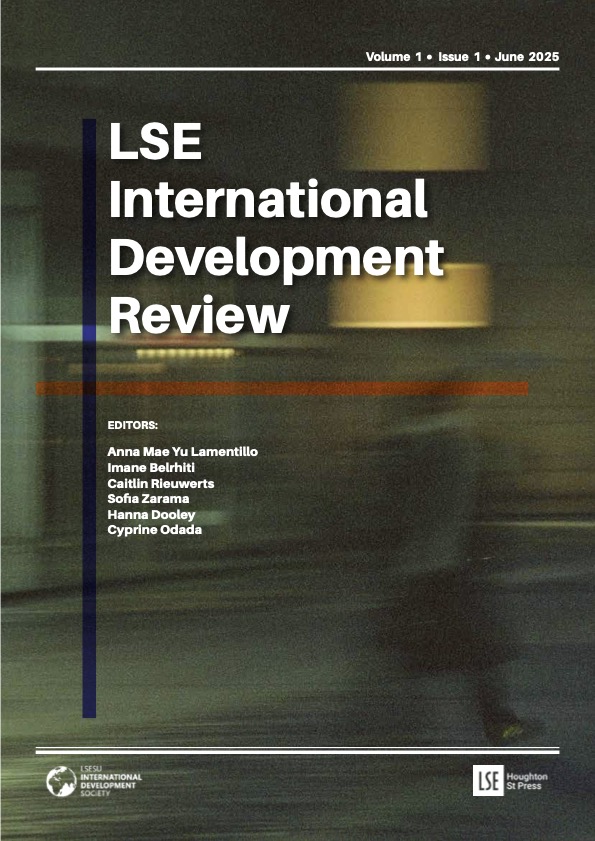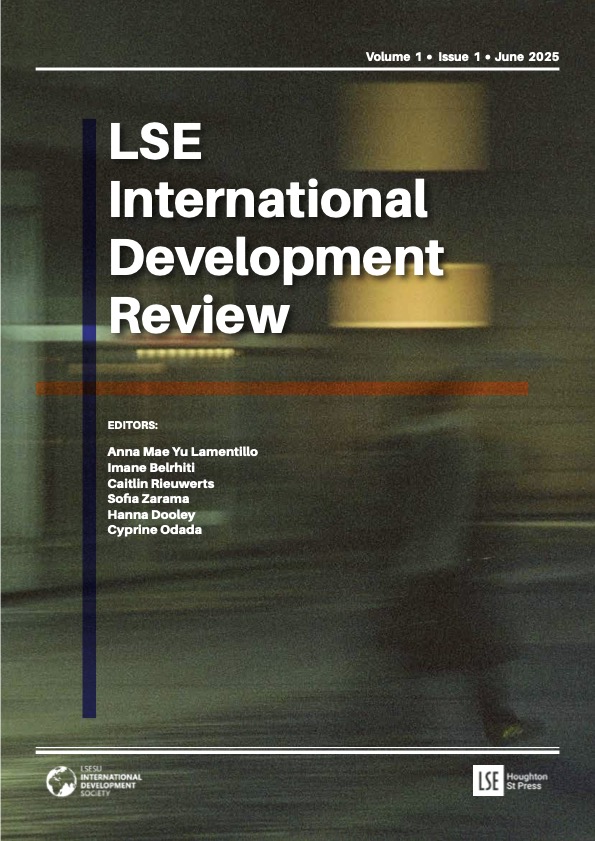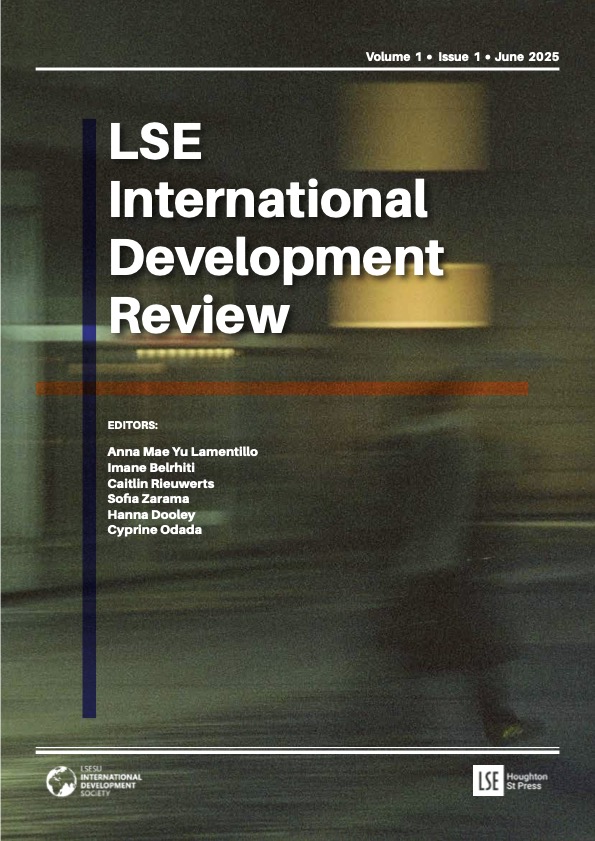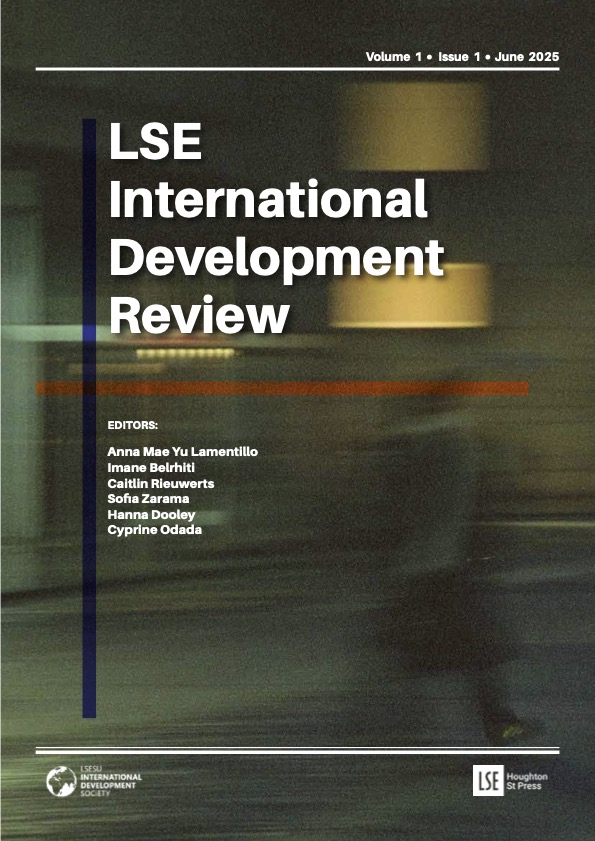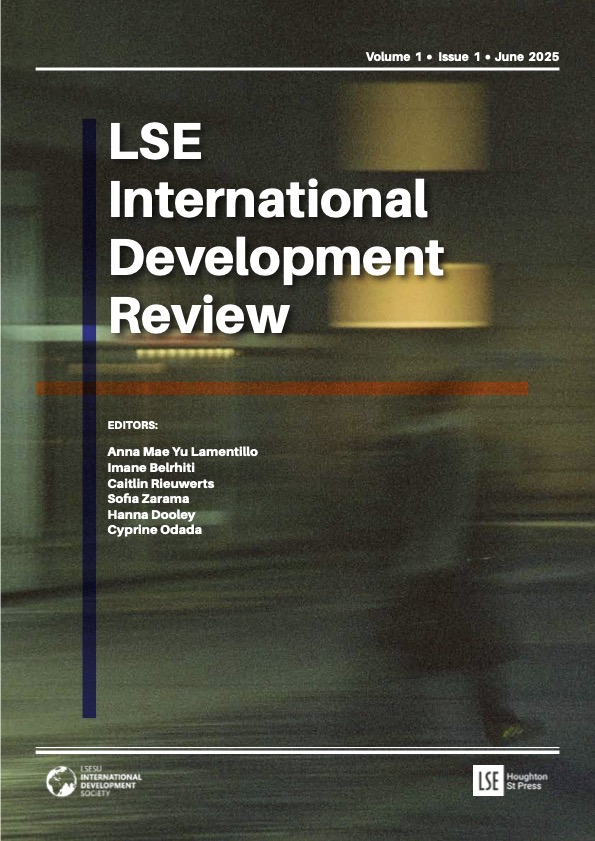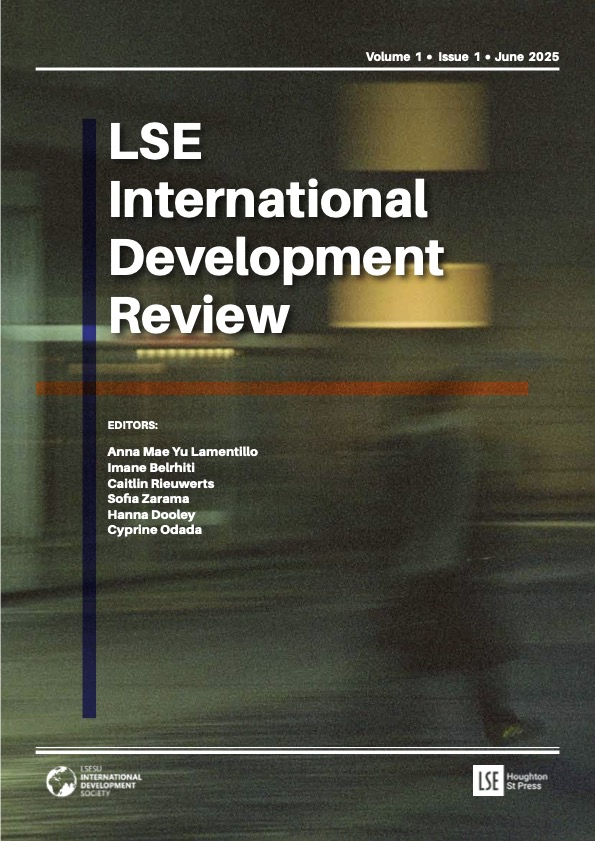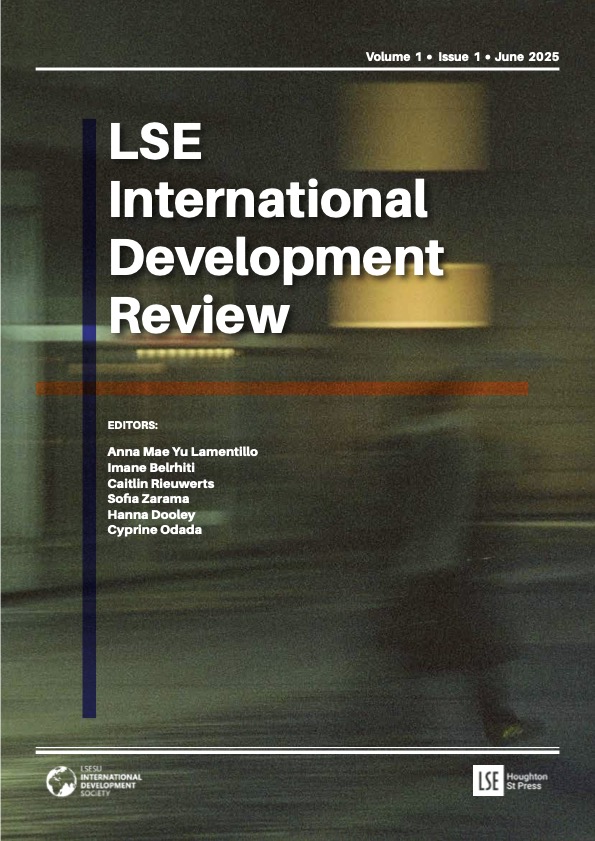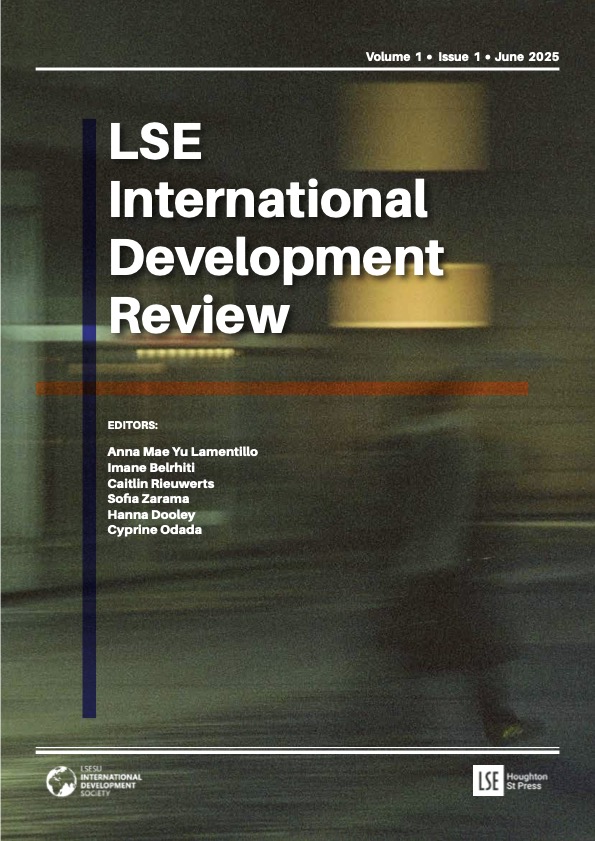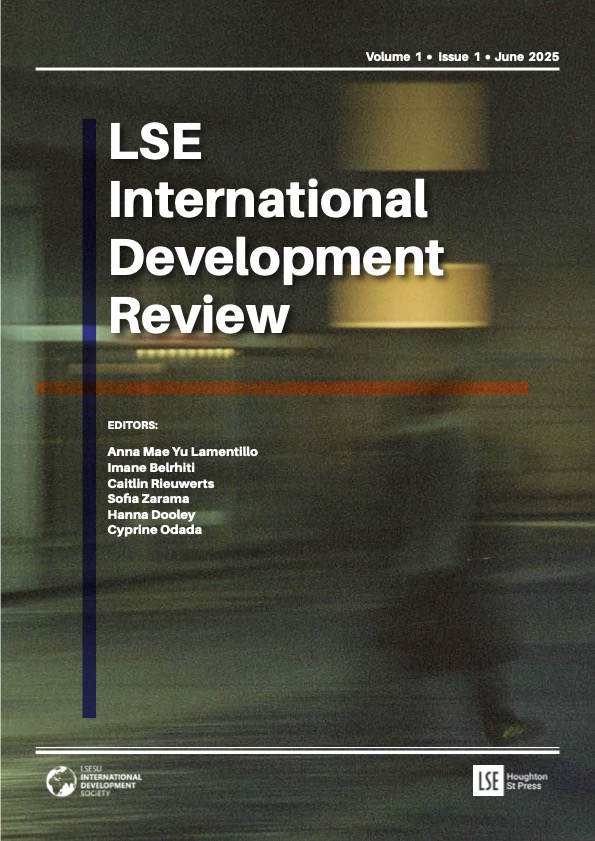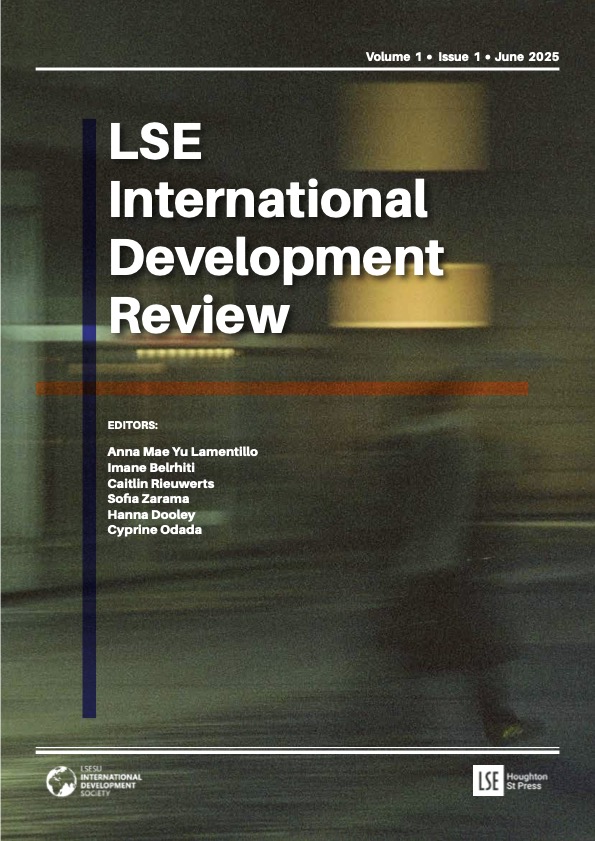Vol. 4 No. 1 (2025): LSE International Development Review

Editorial Note
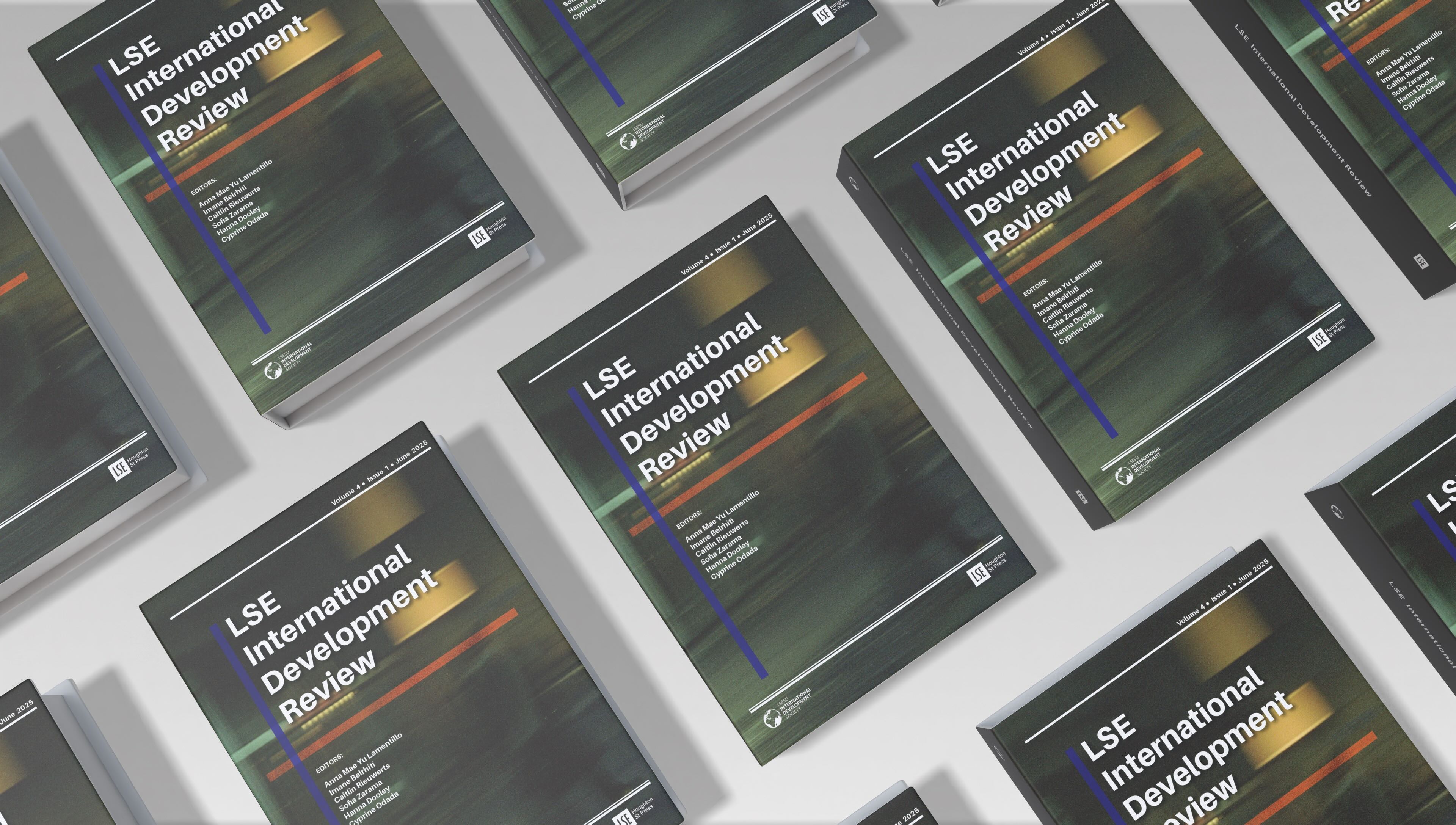
The present volume inaugurates the first print issue of the LSE International Development Review, marking a significant contribution to interdisciplinary scholarship on international development. It assembles empirical and theoretical inquiries from six world regions—Asia, Africa, the Middle East, Europe, Latin America, and North America—addressing urbanization, migration, political economy, human development, environmental sustainability, and global health. Each article advances rigorous analysis and critical engagement, thereby enriching policy discourse and extending conceptual foundations.
Chapter 1: Rethinking Governance
This section critically evaluates governance structures and their implications for international development management. Contributions interrogate mechanisms of financial contagion, assess governance frameworks in mega-infrastructure projects, and analyse the housing-affordability crisis in Toronto. Employing case studies and comparative methodologies, the authors elucidate systemic resilience, leadership dynamics, and the necessity of inclusive institutional design.
Chapter 2: Digital Transformations and Subjectivities
The essays in this section explore the intersection of digital technologies and human development. They examine the evolution of digital humanitarianism, advocating decolonial approaches to technology deployment, and undertake a detailed assessment of AI-powered symptom-checking tools. The analyses consider implications for health-system integration, equity of access, and broader socioeconomic outcomes.
Chapter 3: Low-Emission and Electrified Transport
Focusing on sustainable urban mobility, this section unpackages the political, economic, and social barriers to implementing low-emission zones and electric-bus fleets. Case studies from São Paulo and Nairobi illustrate stakeholder engagement models, innovative financing mechanisms, and targeted policy instruments requisite for facilitating transitions to low-carbon transport systems.
Chapter 4: Proximity, Pedestrianism, and the 15-Minute City
The final section examines urban paradigms that marry environmental sustainability with social equity and economic vitality. Contributions assess the adaptability of the 15-minute city concept in Metro Manila, investigate the environmental repercussions of the Israeli–Palestinian conflict, and propose a pedestrianisation strategy for Osu Oxford Street in Ghana. Together, they demonstrate the intersectionality of urban design, human rights, and ecological resilience.
We are proud of the global inclusivity reflected both in our editorial team and our submissions. The editorial board, affiliated with the London School of Economics, comprises scholars of diverse national origins—namely, the Philippines, Colombia, Kenya, the United States, France, the Netherlands, and the United Kingdom. Contributors likewise represent a broad spectrum of geographies. Our collective work underscores a commitment to global inclusivity and the pursuit of nuanced understanding in international development studies.
We hope that this issue will foster insightful dialogue, stimulate innovative policy interventions, and deepen scholarly engagement with the complexities of international development.
Anna Mae Yu Lamentillo, Editor-in-Chief, https://orcid.org/0009-0003-7416-442X
Imane Belrhiti, Deputy Editor, https://orcid.org/0009-0006-6940-9631
Caitlin Rieuwerts, Deputy Editor, https://orcid.org/0009-0004-3183-5489
Hanna Dooley, Section Editor, https://orcid.org/0009-0003-3037-5516
Cyprine Odada, Section Editor, https://orcid.org/0009-0000-8798-6770
Sofia Zarama, Section Editor, https://orcid.org/0009-0003-5095-657X


